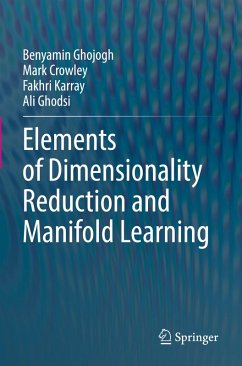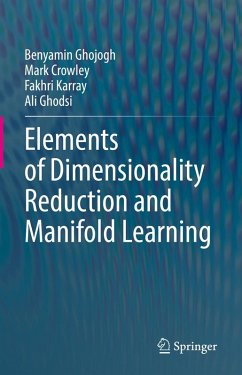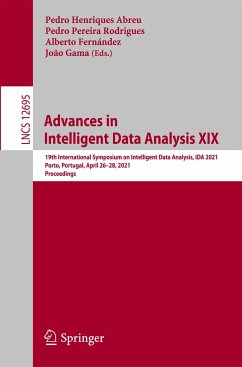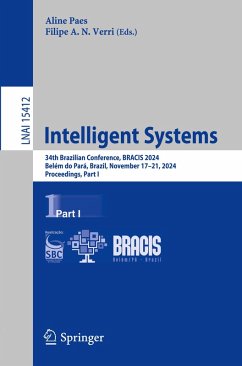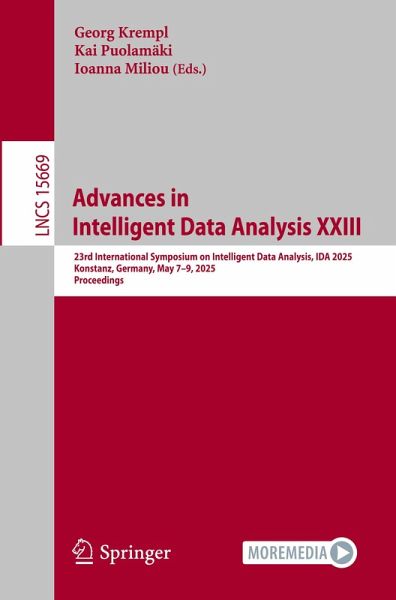
Advances in Intelligent Data Analysis XXIII
23rd International Symposium on Intelligent Data Analysis, IDA 2025, Konstanz, Germany, May 7-9, 2025, Proceedings
Herausgegeben: Krempl, Georg; Puolamäki, Kai; Miliou, Ioanna

PAYBACK Punkte
57 °P sammeln!
This volume constitutes the proceedings of the 23rd International Symposium on Intelligent Data Analysis, IDA 2025, which was held in Konstanz, Germany, during May 7 9, 2025.
The 35 full papers included in the proceedings were carefully reviewed and selected from 91 submissions. They were organized in topical sections as follows: Applications of data science, foundations of data science; natural language processing; temporal and streaming data; and explainable and interpretable data science.
The 35 full papers included in the proceedings were carefully reviewed and selected from 91 submissions. They were organized in topical sections as follows: Applications of data science, foundations of data science; natural language processing; temporal and streaming data; and explainable and interpretable data science.





